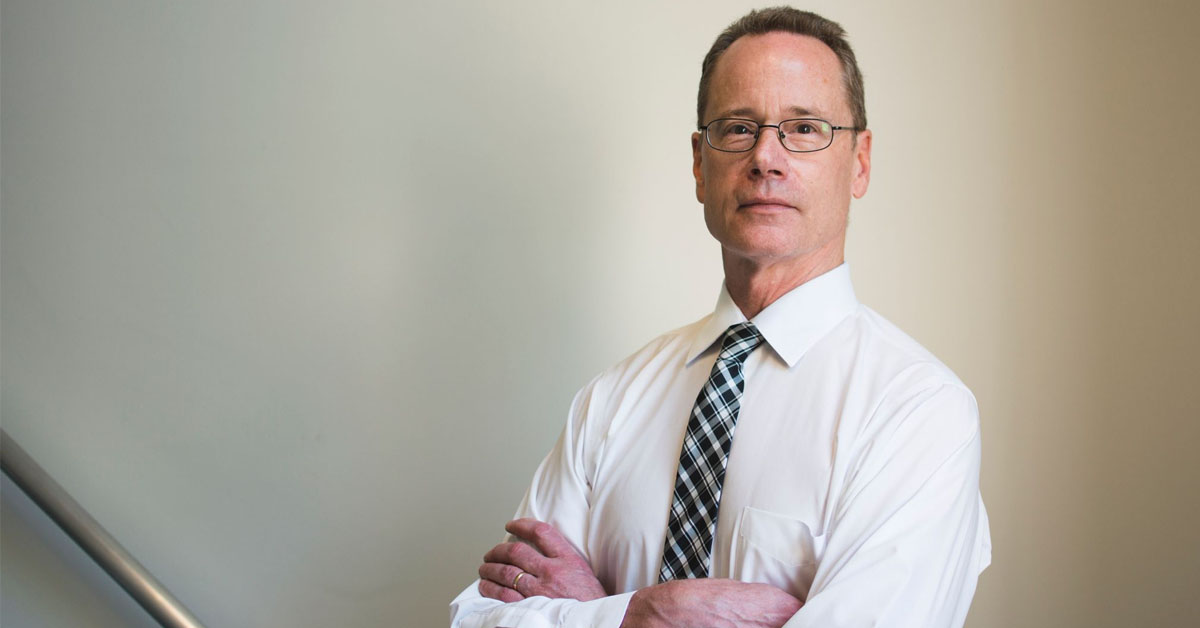COVID-19 introduced new norms to all of us—no matter our health or socioeconomic status, we all became vulnerable consumers.
Kogod marketing professor Ron Hill has spent the last 30 years examining consumer vulnerability in the marketplace. During our Kogod on COVID webinar series earlier this fall, Hill explained what it means to be a vulnerable consumer and how COVID-19 impacts our access to essential goods and services.
“Last spring, when we went virtual, my students were reading some work of mine on vulnerable consumers, and they said, ‘Right now, every consumer is vulnerable,’” explains Hill. “Together, we came up with the idea that people who lack access to resources at any particular point in time are going to be vulnerable. And they’re vulnerable because it affects access to food, clothing, and healthcare. COVID-19 is making everyone vulnerable at least for a short period of time.”
Hill uses five factors to determine how vulnerable an individual is: (1) having enough nutritious food; (2) having clothing that is appropriate to the climate/environment and culture; (3) having shelter that is adequate for the number of people residing there, offers privacy, and is secure from the elements; (4) having access to preventative and remedial healthcare; and (5) having the ability to make life better through access to job opportunities or education.
While everyone became vulnerable from the start of the COVID-19 pandemic, many populations who had already been struggling to cover their basic needs were left with no options and no alternatives. Deliveries were not made to smaller shops, even in urban areas, and shelves were completely bare of any essential products, exacerbating already-existing food deserts. While everyone struggled to find toilet paper and cleaning products, many had trouble simply finding food.
“Those who were most vulnerable prior to COVID-19 also saw the greatest increase in vulnerability, which can make conditions almost impossible to withstand,” says Hill.
Stores did what they could to help more vulnerable populations by offering early-morning hours for immune-compromised and senior shoppers. Many stores also limited the number of hard-to-come-by products per purchase, hoping to keep cleaning supplies, toilet paper, and other necessities on the shelves longer.
Product demand is good for business, but Hill notes that it is also important for businesses to consider the consumer’s needs. “I always start my classes by asking students to think about the moral framework they would bring to the marketplace,” he says. “It’s not enough to learn about marketing—you need to be able to contextualize it in terms of your own sense of right and wrong. If you don’t, as an executive, you’re going to be ill-prepared to deal with those situations which will come up that test your moral fiber.”
Now that we are in the middle of the holiday season, it is apparent that consumer behavior differs during a pandemic. Many shoppers are looking to spend less this year, and many will shop online for safety reasons.
This year, brands and vendors are offering more incentives for consumers to shop online, and as shipping windows close, many stores are also pivoting toward curbside pickup for convenience as well as safety. A growing number of stores are refusing to accept cash to reduce contact between employees and customers.
Whether these new norms have staying power or not, they’re already affecting vulnerable populations—like elders who are uncomfortable shopping online or people without credit cards—by further restricting their access to essential goods.
“I want my students to know and think about—when you do something in marketing, it has consequences. When you don’t do something, it also has consequences,” says Hill.
So, this holiday season, remember that the COVID-19 pandemic has made us all vulnerable consumers for at least some period of time. Shop safe and think of those who are extra vulnerable this year.
Watch Professor Ron Hill’s full interview, and check out the full Kogod on COVID playlist on our Facebook page, where our expert faculty discuss how the pandemic is affecting women business owners, the auto industry, education, and more.
